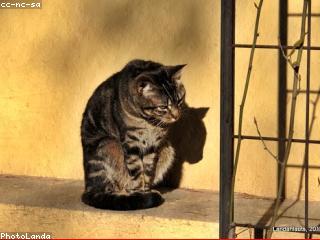When inspecting the results of an XPath query, displaying the text often
Usage
show_list(nodelist, stylesheet_path = stylesheet())
show_block(nodelist, mark = FALSE, stylesheet_path = stylesheet())
show_censor(nodelist, stylesheet_path = stylesheet())Arguments
- nodelist
an object of class
xml_nodesetORxml_nodeOR a list of either.- stylesheet_path
path to the XSL stylesheet
- mark
[bool] When
TRUEmarkers ([...]) are added to replace nodes that come before or after the islated nodes. Defaults toFALSE, which only shows the isolated nodes in their respective blocks. Note that the default state may cause nodes within the same block to appear adjacent to each other.
See also
to_md_vec() to get a vector of these elements in isolation.
Examples
path <- system.file("extdata", "show-example.md", package = "tinkr")
y <- tinkr::yarn$new(path, sourcepos = TRUE)
y$protect_math()$protect_curly()
items <- xml2::xml_find_all(y$body, ".//md:item", tinkr::md_ns())
imgs <- xml2::xml_find_all(y$body, ".//md:image | .//node()[@curly]",
tinkr::md_ns())
links <- xml2::xml_find_all(y$body, ".//md:link", tinkr::md_ns())
code <- xml2::xml_find_all(y$body, ".//md:code", tinkr::md_ns())
blocks <- xml2::xml_find_all(y$body, ".//md:code_block", tinkr::md_ns())
# show a list of items
show_list(links)
#>
#>
#> [relative links](#links)
#>
#> [anchor links]
#>
#> [anchor links]: https://example.com/anchor
#>
#>
show_list(code)
#>
#>
#> `utils::strcapture()`
#>
show_list(blocks)
#>
#>
#> ```r
#> sourcepos <- c("2:1-2:33", "4:1-7:7")
#> pattern <- "([[:digit:]]+):([[:digit:]]+)-([[:digit:]]+):([[:digit:]]+)"
#> proto <- data.frame(
#> linestart = integer(), colstart = integer(),
#> lineend = integer(), colend = integer()
#> )
#> utils::strcapture(pattern, sourcepos, proto)
#> ```
#>
#>
# show the items in their local structure
show_block(items)
#>
#>
#> - kittens
#> - are
#> - super
#> - cute
#> - have
#> - teef
#> - murder mittens
#> - brains
#> - are
#> - wrinkly
#>
show_block(links, mark = TRUE)
#>
#>
#> [...] [relative links](#links) [...][...] [anchor links] [...]
#>
#> [anchor links]: https://example.com/anchor
#>
#>
# show the items in the full document censored (everything but whitespace):
show_censor(imgs)
#>
#>
#> ## ▇▇▇▇▇
#>
#> ### ▇▇▇▇▇▇▇▇
#>
#> ▇▇▇▇ ▇▇▇ ▇▇▇▇ [▇▇▇▇▇▇▇▇ ▇▇▇▇▇](▇▇▇▇▇▇) ▇▇▇ [▇▇▇▇▇▇ ▇▇▇▇▇]▇
#>
#> ### ▇▇▇▇▇▇
#>
#> {alt='a random picture of a kitten'}
#>
#> ## ▇▇▇▇▇
#>
#> - ▇▇▇▇▇▇▇
#> - ▇▇▇
#> - ▇▇▇▇▇
#> - ▇▇▇▇
#> - ▇▇▇▇
#> - ▇▇▇▇
#> - ▇▇▇▇▇▇ ▇▇▇▇▇▇▇
#> - ▇▇▇▇▇▇
#> - ▇▇▇
#> - ▇▇▇▇▇▇▇
#>
#> ## ▇▇▇▇
#>
#> ▇▇▇▇ ▇▇ ▇▇ ▇▇▇▇▇▇▇ ▇▇ ▇▇▇ `▇▇▇▇▇▇▇▇▇▇▇▇▇▇▇▇▇▇▇` ▇▇▇▇▇▇▇▇
#>
#> ```r
#> ▇▇▇▇▇▇▇▇▇ ▇▇ ▇▇▇▇▇▇▇▇▇▇▇▇▇ ▇▇▇▇▇▇▇▇▇▇
#> ▇▇▇▇▇▇▇ ▇▇ ▇▇▇▇▇▇▇▇▇▇▇▇▇▇▇▇▇▇▇▇▇▇▇▇▇▇▇▇▇▇▇▇▇▇▇▇▇▇▇▇▇▇▇▇▇▇▇▇▇▇▇▇▇▇▇▇▇▇▇▇▇
#> ▇▇▇▇▇ ▇▇ ▇▇▇▇▇▇▇▇▇▇▇
#> ▇▇▇▇▇▇▇▇▇ ▇ ▇▇▇▇▇▇▇▇▇▇ ▇▇▇▇▇▇▇▇ ▇ ▇▇▇▇▇▇▇▇▇▇
#> ▇▇▇▇▇▇▇ ▇ ▇▇▇▇▇▇▇▇▇▇ ▇▇▇▇▇▇ ▇ ▇▇▇▇▇▇▇▇▇
#> ▇
#> ▇▇▇▇▇▇▇▇▇▇▇▇▇▇▇▇▇▇▇▇▇▇▇▇▇▇ ▇▇▇▇▇▇▇▇▇▇ ▇▇▇▇▇▇
#> ```
#>
#> ## ▇▇▇▇
#>
#> ▇▇▇▇▇▇ ▇▇▇▇ ▇▇▇ ▇▇ ▇▇▇▇▇▇▇ ▇▇ ▇▇ ▇ ▇▇ ▇ ▇▇ ▇▇▇▇▇ ▇▇▇▇▇ ▇▇▇▇ ▇▇▇▇▇▇ ▇▇▇
#>
#> ▇▇
#> ▇ ▇ ▇▇ ▇ ▇
#> ▇▇
#>
#> [▇▇▇▇▇▇ ▇▇▇▇▇]: ▇▇▇▇▇▇▇▇▇▇▇▇▇▇▇▇▇▇▇▇▇▇▇▇▇▇
#>
#>
# You can also adjust the censorship parameters. There are two paramters
# available: the mark, which chooses what character you want to use to
# replace characters (default: `\u2587`); and the regex which specifies
# characters to replace (default: `[^[:space:]]`, which replaces all
# non-whitespace characters.
#
# The following will replace everything that is not a whitespace
# or punctuation character with "o" for a very ghostly document
op <- options()
options(tinkr.censor.regex = "[^[:space:][:punct:]]")
options(tinkr.censor.mark = "o")
show_censor(links)
#>
#>
#> ## ooooo
#>
#> ### oooooooo
#>
#> oooo ooo oooo [relative links](#links) ooo [anchor links].
#>
#> ### oooooo
#>
#> {ooo='o oooooo ooooooo oo o oooooo'}
#>
#> ## ooooo
#>
#> - ooooooo
#> - ooo
#> - ooooo
#> - oooo
#> - oooo
#> - oooo
#> - oooooo ooooooo
#> - oooooo
#> - ooo
#> - ooooooo
#>
#> ## oooo
#>
#> oooo oo oo ooooooo oo ooo `ooooo::oooooooooo()` oooooooo
#>
#> ```r
#> ooooooooo <- o("o:o-o:oo", "o:o-o:o")
#> ooooooo <- "([[:ooooo:]]+):([[:ooooo:]]+)-([[:ooooo:]]+):([[:ooooo:]]+)"
#> ooooo <- oooo.ooooo(
#> ooooooooo = ooooooo(), oooooooo = ooooooo(),
#> ooooooo = ooooooo(), oooooo = ooooooo()
#> )
#> ooooo::oooooooooo(ooooooo, ooooooooo, ooooo)
#> ```
#>
#> ## oooo
#>
#> oooooo oooo ooo oo ooooooo oo $o = oo + o$ ooooo ooooo oooo oooooo oo:
#>
#> $$
#> o = oo + o
#> $$
#>
#> [anchor links]: https://example.com/anchor
#>
#>
options(tinkr.censor.regex = NULL)
options(tinkr.censor.mark = NULL)
